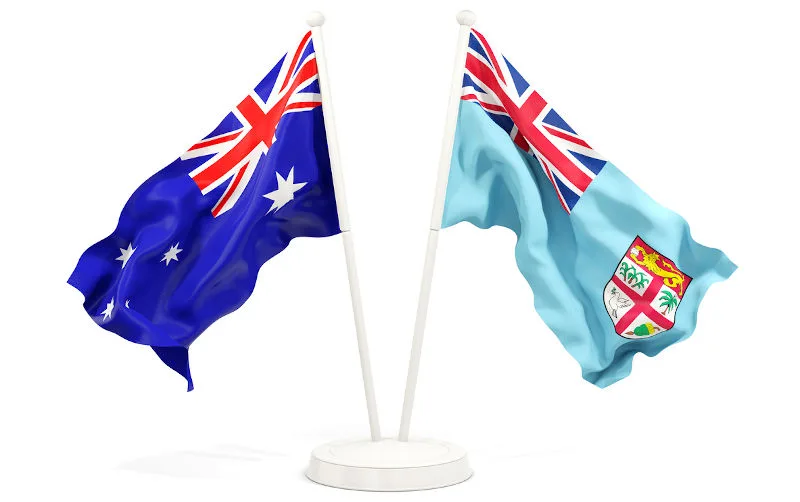
Image: iStock
In 2023, an American economics firm, Brattle, provided its reparation calculations to a symposium on Transatlantic Slavery Reparations chaired by international judge Patrick Robinson. Brattle calculated that the USA and slave-trading European countries owed the Caribbean and Americas US$130 trillion for wrongs done over a 400-year period.
The reparation numbers are shocking but the symposium’s panel of experts approved them. Overruling them, Judge Robinson decided a better approach would be for those slave-trading countries to fund a levelling-up process aimed to help the descendants of those slaves, many of whom are still clearly disadvantaged, especially in the USA.
In my book “Knights, Plights & Flights” I contrast the journeys made by transatlantic slaves to those of the people of the Solomon Islands and Vanuatu who were transported for work in Australia and Fiji. The sorry fact is that there was little contrast in their treatment during the journeys. Many islanders were taken against their will – forced to do so after witnessing terrifying acts of violence imparted on some who resisted, and there are well-documented stories of those thrown overboard for their continuing resistance. Living conditions on certain cotton estates of Fiji were so poor that 62% of Solomon Islanders working there died in a nine-month period. Many of those who survived chose not to return to the Solomon Islands, instead staying in Fiji, where their descendants live today.
Those descendants suffer many disadvantages compared to iTaukei Fijians, the dominant Fijian race. The Solomonis live in relatively informal communities scattered around Fiji’s capital, Suva, and in scattered and remote communities on Vanua Levu, Fiji’s second island. The communities suffer lack of access to land and higher education scholarships. They must overcome steep hurdles to access formal sector jobs due to discrimination based on place of abode. Voting rights are not equal.
Using Brattle’s formulae and given the numbers of Solomon Islanders recorded as having arrived in Fiji, suggest a reparation debt of $75 billion. That is not going to stick. Taking Judge Robinson’s levelling-up approach instead suggests that countries responsible for slave-transporting, in this case Australia, might pay reparations to Fiji to ensure Solomon Islanders born and living in Fiji are in all respects treated equally to others born in Fiji. This would entail the purchase of land for Solomon Islander settlements, a scholarship programme for tertiary and vocational training, and a process to overcome the problems of access to formal sector jobs. Australia might also petition for equal enfranchisement for all Pacific islanders born in Fiji, so ending all discrimination.
Australians might argue that the Commonwealth was not created until 1901, and that most of the transportation trade was carried out when NSW and Queensland were colonies. I highlight the freedom of decision-making that those colonies had during this period; the disgraceful performance of the law courts that ensured the trade could continue; and the continuing honour that is given to some of the more egregious transporters. The towns of Mackay, Queensland and Boydtown, NSW are named after two of the worst offenders.
This is just one of the narratives in my book. I cover the sorry tale of the pillage of Ocean Island, now called Banaba Island, in Kiribati, whose phosphate deposits, sold at cost to Australian farmers, allowed an explosion of economic growth and well-being, giving Australia incredible advantage over other countries in the region, advantages still enjoyed today. Yet the rusting mining equipment and asbestos-laden wrecks of mining buildings are more than just an eyesore blighting the home of over 300 people living on Banaba Island. It is a reminder of the greed of the mining enterprise, 42% controlled by Australian government. Will they not commit with their mining partners – New Zealand and the UK – to removing these buildings and equipment?
The debate on climate change forms the focus of an extended essay whose subject is the residents of Kioa Island in Fiji. The residents are Tuvaluans, whose ancestors came over from Vaitupu atoll. Kioa’s back story documents that those who migrated were not rewarded for their work developing the island, leading to conflict with those who remained on Vaitupu, who enjoyed all the financial benefits of Kioa land ownership. This history can provide guidance to Australia following the decision to allow Tuvaluans residence visas under the Falepi Union Treaty.
Underpinning all three stories is the undercurrent of institutional racism in Fiji. I summarise the finding of science and social science experts and delve into history to show that the iTaukei people are neither the first people on the islands nor are they classified as indigenous. The change in government in late 2022 has reinforced their superiority however, and racism has hardened. Pacific islanders born in Fiji are not treated as equals, but as foreigners.
“Knights, Plights & Flights” is available on Amazon Australia from 15 April 2024.

